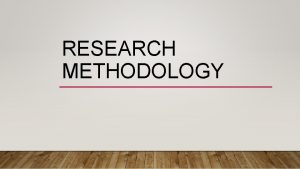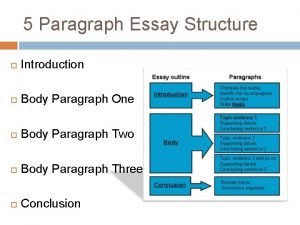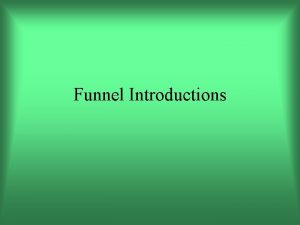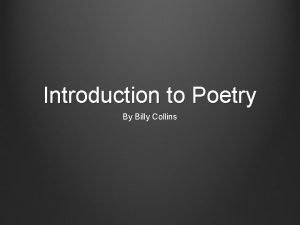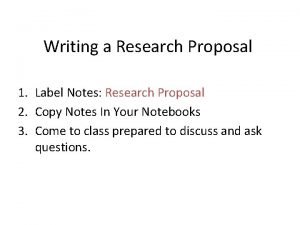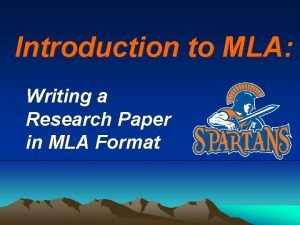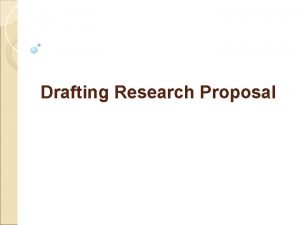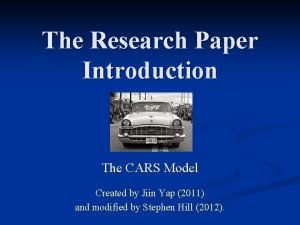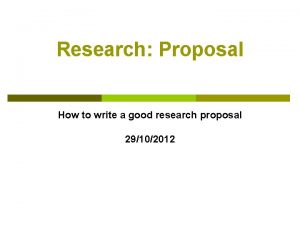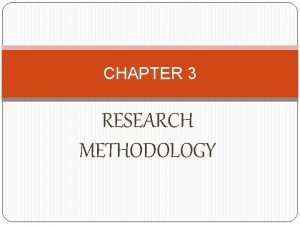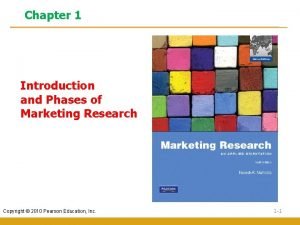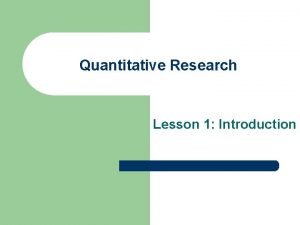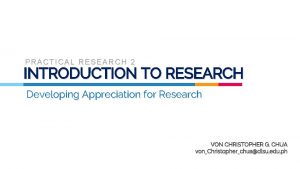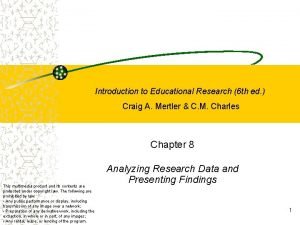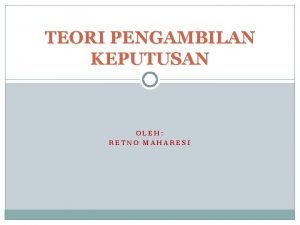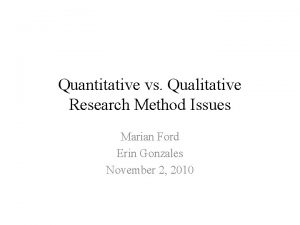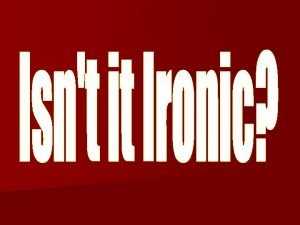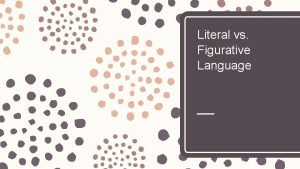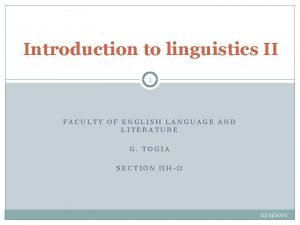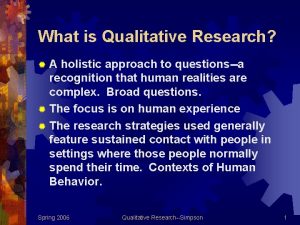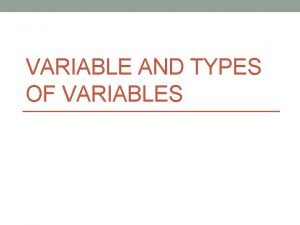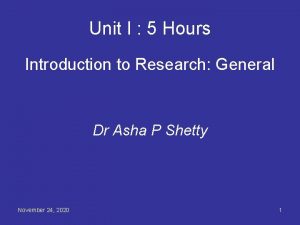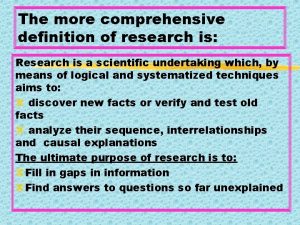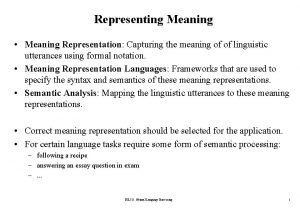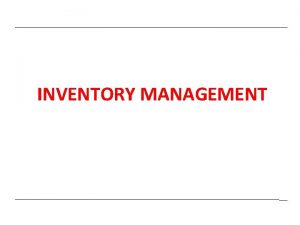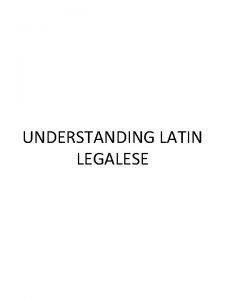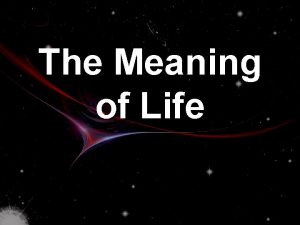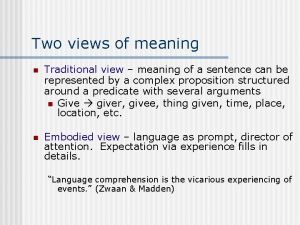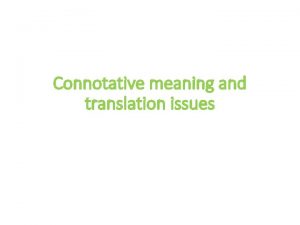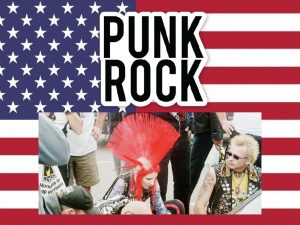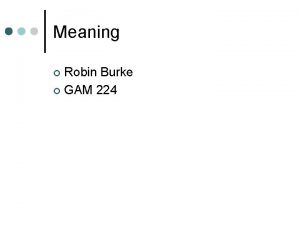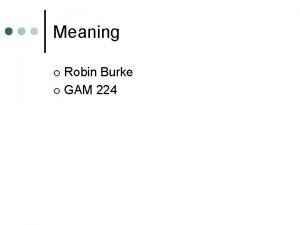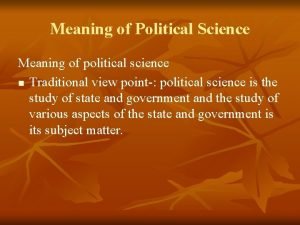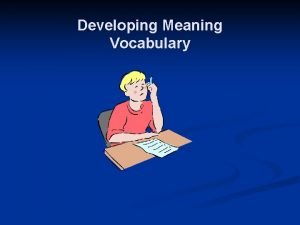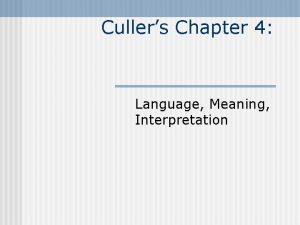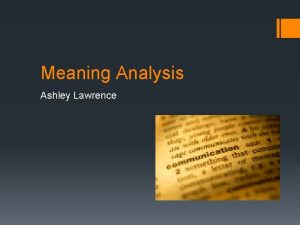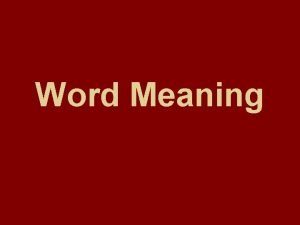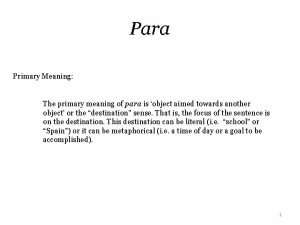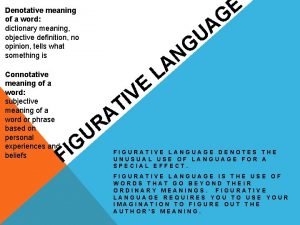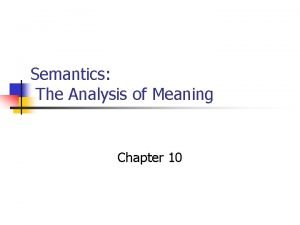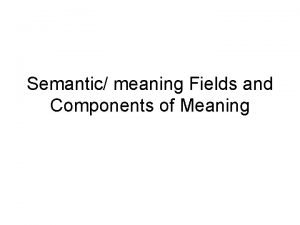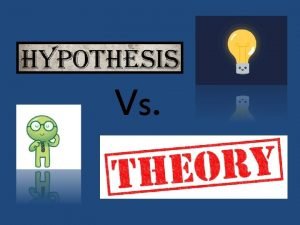Introduction to Research Meaning of Research Research is


























- Slides: 26

Introduction to Research

Meaning of Research • Research is an art of scientific investigation. • Research is an academic activity which comprises defining and redefining problems, formulating hypothesis or suggested solutions, collecting, organizing and evaluating data, making deductions and reaching conclusions and at last carefully testing the conclusions to determine whether they fit the formulating hypothesis. • Business research is a process of planning, acquiring, analyzing and disseminating relevant data, information and insights to decision makers in ways that mobilize the organization to take appropriate actions that, in turn, maximize business performance

Objectives of Research 1. To gain familiarity with a phenomenon or to achieve new insights into it 2. To portray accurately the characteristics of a particular individual, situation or a group 3. To determine the frequency with which something occurs or with which it is associated with something else 4. To test a hypothesis of a causal relationship between variables

Types of Research 1. 2. 3. 4. Descriptive vs. Analytical Applied vs. Fundamental Quantitative vs. Qualitative Conceptual vs. Empirical

Descriptive vs. Analytical • • Descriptive research includes surveys and fact-finding enquiries of different kinds. It uses descriptive studies in which researcher seeks to measure characteristics like, shopping behaviour, preferences, etc. Generally survey methods are used for descriptive research. Analytical research includes use of facts and information already available and analyze these to make a critical evaluation of the material

Fundamental vs. Applied • • Fundamental research is concerned with generalizations and with the formulation of theory. Research concerning some natural phenomenon or relating to pure mathematics are examples of fundamental research. Its basic aim is finding information that has a broad base of application. Applied research aims at finding a solution for an immediate problem facing a society or business organization. Marketing research, trend analysis are examples of applied research

Quantitative vs. Qualitative • • Quantitative research is based on the measurement of quantity or amount. It is applicable to phenomena that can be expressed in terms of quantity. For example, questionnaire survey result. Qualitative research is concerned with qualitative phenomenon like relating to or involving the reasons or motives for human behaviour. For example, word association, tests, sentence completion tests, story completion, etc.

Conceptual vs. Empirical • • Conceptual research is that related to some abstract ideas or theory. It is generally used by philosophers and thinkers to develop new concepts or to reinterpret the existing one. Empirical research relies on experience or observation, often with some data based research. It is necessary to get all facts and information at first hand.

Research Methods and Methodology • Research methods may be understood as all those methods/techniques that are used for conduction of research. It refers to the methods the researcher uses in performing research operations. Research methods can be put into following three groups: Ø Concerned with data collection Ø Concerned with statistical Techniques Ø Concerned with methods of evaluating the accuracy of the results obtained

Cont… • • • Research Methodology is a way to systematically solve the research problem. It may be understood as a science of studying how research is done scientifically. When we talk of research methodology we do not only talk of the research methods but also the logic behind the methods we use in the context of our research. Research Methodology has many dimensions and research methods do constitute a part of it.

Logic Behind Research • • Explosive growth and influence of the Internet Stakeholders demanding greater influence More vigorous competition More government intervention More complex decisions Maturing of management as a group of disciplines Greater computing power and speed – lower cost data collection, better visualization tools, powerful computations, more integration of data, more and faster access to information, advanced analytical tools for enhanced insights, customized reporting New perspectives on established research methodologies

Information and Decision Making in Research • • • Goals Decision Support – Decision Support System, Intranet, Extranet Business Intelligence System (BIS) Strategy – general approach an organization will follow to achieve its goals Tactics – specific and timed activities that execute strategy

Purpose of Business Research • • To identify and define opportunities and Problems To define, monitor and refine strategies To define, monitor and refine tactics To improve our understanding of the various fields of management

Hierarchy of Information-Based Decision Making Top Tier Visionaries Middle Tier Standardized DM Base Tier Intuitive Decision Making Decisions guided by business research Innovation based on developed methodologies Enterprise wide access to research data and findings Decisions based in business research Trial and error method of using methodology Limited enterprise wide data and findings Most decisions are on past experience or instinct Decisions supported with secondary data

Entities Conducting Business Research Internal Research Department • • • Consumer goods and services producers Industrial goods and services producers Media companies Wholesale distributors Retail distributors

Entities Conducting Business Research External Research Department 1. Business Research Firms – – – – 2. Full service firm Customer researchers Proprietary methodology researchers Specialist firm Methodology specialist Other specialist Syndicated data providers Communication Agencies – – Advertising Agencies Public Relation Agencies Sales Promotion Agencies Direct Marketing Agencies

Entities Conducting Business Research 3. Consultants – – 4. Marketing Consultants General Business Consultants Trade Associations – – – General Business Specialties Research Specialties

Characteristics of Good Scientific Research 1. 2. 3. 4. 5. 6. 7. 8. Purpose Clearly defined Research process detailed Research design thoroughly planned High ethical standards applied Limitations frankly revealed Analysis adequate for decision maker’s needs Findings presented unambiguously Conclusions justified

Research and the Scientific Method • Sound Reasoning – finding correct premises, testing the connections between their facts and assumptions, making claims based on adequate evidence. Essentials of Scientific Methods • • • Direct observation of phenomena Clearly defined variables, methods and procedures Empirically testable hypotheses The ability to rule out rival hypotheses Statistical rather than linguistic justification of conclusions The self-correcting process

Research and the Scientific Method • Empiricism – to denote observations and propositions based on sensory experience and/or from such experiences by methods of inductive logic, including mathematics and statistics Steps for conducting Empirical research • • Encounter a curiosity, doubt, suspicion or obstacle Struggle to state the problem Proposes a hypothesis, a plausible explanation of facts related to problem Deduces outcomes or consequences of the hypothesis Formulates several rival hypotheses Devise and conduct a crucial empirical test with various possible outcomes Draws a conclusion based on acceptance or rejection of the hypotheses Feeds information back into the original problem, modifying it according to the strengths of the evidence

Research and the Scientific Method Sound Reasoning for Useful Answers • Exposition – consists of statements that describe without attempting to explain • Argument – • Deduction – a form of argument that purports to be conclusive allows us to explain, interpret, defend, challenge and explore meaning and logical, related to real world and valid • • Induction – drawing a conclusion from one or more particular facts or pieces of evidence Combining induction and deduction

The Language of Research • • • Concept – is a generally accepted collection of meanings or characteristics associated with certain events, objects, conditions, situations and behaviors Construct – is an image or abstract idea specifically invented for a given research and/or theory-building purpose Hypothetical Construct – inferred from the data, presumed to exist and requires further testing Conceptual Scheme – showing logical interrelationship between concepts and constructs Operational Definition – a definition stated in terms of specific criteria for testing or measurement, which are empirical; may explain the characteristics of object/s Variables – synonym for construct and is a symbol of an event, act, characteristics, trait or attribute that can be measured and valued; may be continuous or dichotomous

The Language of Research • • • Independent variable – assumed to be creating significant impact on other variables Dependent variable – is measured, predicted or monitored and is expected to be affected by manipulation of an independent variable Moderating Variable – is a second independent variable that is included because it is believed to have significant contributory or contingent effect on the originally stated IV-DV relationship Extraneous Variable – exist that might conceivably affect a given relationship Control Variable – introduced to help interpret the relationship between variables Intervening Variables – that factor which theoretically affects the observed phenomenon but cannot be seen, measured or manipulated; its effect must be inferred from the effects of the independent and moderator variables on the observed phenomenon

Propositions and Hypotheses • • • Proposition – a statement about observable phenomena that may be judged as true or false Hypothesis – when a proposition is formulated for empirical finding, it is called hypothesis Descriptive Hypotheses – state the existence, size, form or distribution of some variables Relational Hypotheses – statements that describe a relationship between two variables with respect to some case Correlational Hypothesis – state that the variables occur together in some specified manner without implying that one causes the other Causal Hypothesis – implying that the existence of or a change in one variable causes or leads to a change in other variable

Propositions and Hypotheses The Role of the Hypothesis • • Guides the direction of the study Identifies facts that are relevant and those that are met Suggests which form of research design is likely to be most appropriate Provides a framework for organizing the conclusions that result What is a strong Hypotheses? • • • Adequate for its purpose Testable Better than its rivals

Propositions and Hypotheses • Theory – a set of systematically interrelated concepts, definitions and propositions that are advanced to explain and predict phenomena (facts). • Models – a representation of a system that is constructed to study some • aspect of that system or the system as a whole Theory’s role is explanation, where as the Model’s role is representation
 Introduction meaning in research
Introduction meaning in research Conclusion paragraph format
Conclusion paragraph format How to start an intro
How to start an intro Collins introduction to poetry
Collins introduction to poetry Research background example
Research background example Mla paper introduction
Mla paper introduction Drafting research proposal
Drafting research proposal Cars model introduction
Cars model introduction Materi tentang riset pemasaran
Materi tentang riset pemasaran Research proposal components
Research proposal components Chapter three research
Chapter three research Introduction to marketing research chapter 1
Introduction to marketing research chapter 1 What is scientific research
What is scientific research Introduction in practical research 2
Introduction in practical research 2 Introduction to educational research mertler
Introduction to educational research mertler Nursing research chapter 1
Nursing research chapter 1 Operations research an introduction
Operations research an introduction Introduction in quantitative research
Introduction in quantitative research Grammatical meaning and lexical meaning
Grammatical meaning and lexical meaning Difference between literal and implied meaning
Difference between literal and implied meaning Literal meaning vs figurative meaning
Literal meaning vs figurative meaning Conceptual meaning and associative meaning examples
Conceptual meaning and associative meaning examples Fabrication research misconduct
Fabrication research misconduct Holistic data collection
Holistic data collection Control variable example
Control variable example Meaning of hypothesis in research
Meaning of hypothesis in research Comprehensive research meaning
Comprehensive research meaning
